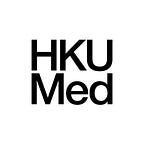Dr Walter Seto Wai-kay — Clinical Experience Drives Discovery | 司徒偉基醫生 — 臨床啟發 科研發現
Clinician-scientist Dr Walter Seto Wai-kay of the Department of Medicine draws inspiration from his patients to investigate and bring new insights in the areas of hepatitis B infection, ketamine drug use and liver cancer diagnoses.
Each of his paths of discovery was inspired by problems that presented in patients and that had either not been described in the literature or did not have a successful medical strategy.
His first breakthrough came more than ten years ago, when he treated a Mr Ng who passed away after the hepatitis B virus (HBV) he was carrying was reactivated after chemotherapy. About 560,000 people in Hong Kong are infected with HBV and, because infection typically does not show symptoms, around 25 per cent of cases end up developing cirrhosis and/or liver cancer unless they have regular check-ups or treatments.
Dr Seto began exploring reactivation and focused on two triggers: the drug rituximab, which is used to treat a wide variety of diseases from haematological and rheumatological disorders to skin disorders and kidney diseases, and bone marrow transplantation.
In the first case, he found that rituximab reactivated HBV in 40 per cent of occult carriers within two years after they received the drug. Reactivation can lead to liver failure and even death if not properly controlled. The study on bone marrow transplantation, funded by the Health and Medical Research Fund, similarly showed a high risk of reactivation.
“These results showed that even if HBV is not active, these patients need preventative therapy,” he said — an approach that has now become standard around the world.
His work on ketamine was inspired by a patient who used ketamine recreationally and had narrowed bile ducts on endoscopy. This is a highly unusual finding among Asian patients and Dr Seto’s report on the case was published in a high-ranking Gastroenterology journal. Afterwards, he did a full study, funded by the Beat Drugs Fund, involving collaborators at North District Hospital, radiologists at HKUMed, and three non-government organisations, whose social workers brought 257 users to him for magnetic resonance scans and follow-ups. He was able to determine that nearly 62 per cent (159) suffered bile duct damage but, just as importantly, those who quit ketamine saw a majority of their bile ducts return to normal.
His third research area is on improving liver diagnosis using artificial intelligence (AI). Liver cancer patients often require repeated scans to confirm their diagnosis, which means treatment is delayed. Dr Seto had a patient in his 30s whose repeated scans showed shadows deemed non-cancerous, but Dr Seto spotted one suspicious nodule. An additional scan confirmed the patient had liver cancer. “Rather than depending on the human eye, I want to help physicians deal with these priority cases more effectively,” he said.
Funded by the Innovation and Technology Fund, he and his colleagues from HKUMed and the HKU Faculty of Science have so far collected an image base of more than 3,000 CT scans that are being run through an AI machine learning process to improve diagnosis. The project is obtaining images from many Hong Kong hospitals and HKU-Shenzhen Hospital, of which Dr Seto is currently holding the position of Assistant Hospital Chief Executive (Research).
Biography
Dr Walter Seto Wai-kay graduated from HKUMed in 2003 and received his Fellowship in Gastroenterology and Hepatology in 2010 from the Hong Kong College of Physicians. He received his Doctor of Medicine from HKU in 2012. He is currently a Clinical Associate Professor in HKUMed. He is also Assistant Hospital Chief Executive (Research); Medical Director, Clinical Trials Center of HKU-Shenzhen Hospital.
He has published more than 170 international journal articles and book chapters, including first-authored articles in The Lancet, Journal of Clinical Oncology, Gut, Journal of Hepatology and Hepatology, the majority of which is related to research on chronic liver diseases. He has been awarded external grand funding from the Innovation and Technology Fund, the Research Grant
Council and the Health and Medical Research Fund. He has over 80 invited international and local lectures.
(This article was originally published in Medical Faculty News)
內科學系臨床副教授司徒偉基醫生,也是科研學者。在診治病人的時候,他受到啟發,開始研究乙型肝炎、氯胺酮(俗稱K仔)的使用和肝癌診斷,開拓科研新方向。
司徒醫生每一項研究,都是源於病人出現過的問題,而該些問題在醫學文獻沒有提及,也沒有成功治癒的方案。
司徒醫生在研究上的首個突破,出現在十多年前。當時由他主治的病人吳先生在接受化療之後,卻激活了其乙型肝炎病毒。在香港,約有560,000人是乙型肝炎帶菌者;受到乙型肝炎病毒感染的人士,通常不會出現症狀,假如沒有定期做身體檢查或是接受治療,其中大約有25%病例會最終發展為肝硬化,以及/或是肝癌。
司徒醫生於是開始探索病毒重新激活的機制,並集中在兩個範疇進行研究:利妥昔單抗藥物(rituximab)和骨髓移植。利妥昔單抗是廣泛用於治療血液系統失調和風濕性疾 病、以至皮膚病和腎病等的藥物。
在首個研究項目裡,他發現隱性乙型肝炎帶菌者從開始使用利妥昔單抗藥物之後,有40%病人的病毒在兩年內會重新激活。如果未能妥善控制,重新激活會引致肝臟衰竭, 甚至是死亡。而由醫療衞生研究基金資助的骨髓移植研究,同樣地顯示乙型肝炎病毒有重新激活的高危機會。
他說:「結果顯示,儘管乙型肝炎病毒不活躍,病人仍然需要作預防性治療。」而這個治療方向已經成為了全世界的標準治療方案。
司徒醫生在氯胺酮(俗稱K仔)的研究,始於一位以消遣性質使用K仔的病人,而從內窺鏡檢查,司徒醫生發現她的膽管收窄。這個是在亞洲人群中很不尋常的發現,而他的相關研究報告也獲排名前列的胃腸病學期刊刊登。之後他展開了一個由禁毒基金資助的全面研究,與北區醫院、醫學院的放射醫療研究人員以及三間非政府機構,為257位經由社工推介的K仔使用者進行磁力共振掃描,以及作出跟進。結果他發現該257名人士中,有接近62%(159名)人士的膽管有受損的情況,但是同樣重要的是,他發現戒除K仔人士中,他們的膽管大部分能夠恢復正常。
司徒醫生的第三項研究,主要是使用人工智能改善肝病診斷。肝癌病人經常需要接受多次掃描以確定診斷,也就是說,治療會延後開始。司徒醫生有一位三十多歲的病人,多次掃描的影像均顯示有非癌症陰影,但是他留意到一個可疑的結核,於是安排病人再次接受掃描,並且在最後確定是肝癌。他說:「與其依賴肉眼,我希望能幫助醫生為需要優先醫治的病人作出更有效的診斷。」
司徒醫生與他在港大醫學院及理學院的團隊,在創新及科技基金資助下,至今收集了超過3,000個從人工智能儀器學習過程中取得的電腦掃描,成立了醫學影像庫,從而改善病症診斷。這個項目從多家香港醫院和港大深圳醫院取得醫學影像。現時司徒醫生也是港大深圳醫院的助理院長(科研事務)。
簡歷
司徒偉基醫生2003年畢業於港大醫學院,2010年獲香港內科醫學院腸胃肝臟科院士資格,2012年獲香港大學頒授醫學博士學位;現在是港大醫學院內科學系臨床副教授,同時也是港大深圳醫院的助理院長(科研事務)及臨床試驗中心主任。
司徒醫生發表逾170篇論文及書籍章節,其中包括在國際期刊《刺針》、《Journal of Clinical Oncology》、《Gut》、《Journal of Hepatology》和
《Hepatology》等以第一作者身份發表與慢性肝病研究相關的文章。他也取得創新及科技基金、研究資助局及醫療衞生研究基金的高額資助;亦曾獲邀出席超過80場國際和本地講座。
(原文刊登於港大醫學院 Medical Faculty News)
